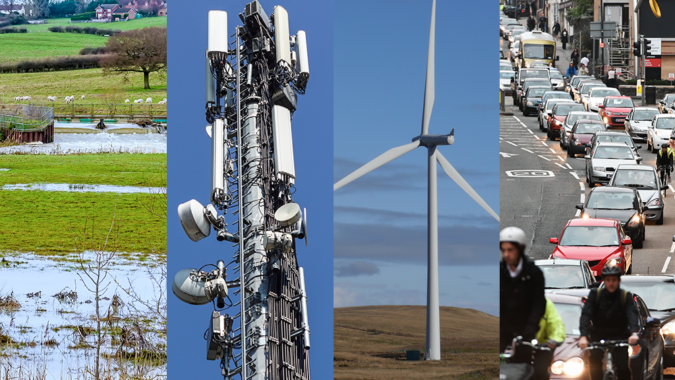Now more than ever we can see the importance of data to help us anticipate, react, and recover from infrequent but potentially devastating events. But this is not just true of pandemics: data can help us to manage direct shocks to infrastructure as well.
During the current crisis, our infrastructure systems have generally stood up well. Thanks to the hard work of infrastructure operators, we have been able to access water, energy, transport and communications as we needed them, despite the unprecedented circumstances.
But what if the threat had been different? Or what if two or more unexpected events had occurred at the same time?
As a society, we need to have confidence that our services will support us across a range of circumstances. Knowing after the fact is too late.
A few weeks ago, the Commission published its study of infrastructure resilience – Anticipate, React, Recover: Resilient Infrastructure Systems. The report calls for government to set standards for the resilience of our infrastructure, establish regular stress testing of infrastructure systems, and require operators to maintain long term resilience strategies. These together will ensure that resilience standards can be met now and in the future.
The report emphasises that infrastructure operators know their systems better than government does. They are best placed and incentivised to evaluate their systems and demonstrate that they will be able to provide services to the public despite shocks and stresses.
Therefore, the Commission’s report calls for operators to regularly stress test their systems to give confidence that they are resilient now – and maintain long term strategies to help ensure they remain so in the future.
Data and digital tools are key to assessing the resilience of infrastructure systems.
Data on the condition of assets can be used to identify assets at risk of failure, data on supply and demand can be used to manage network capacity and revenue fluctuations, geospatial data can help to identify vulnerabilities arising from closely located assets, and satellite imaging has the potential to identify warning signs of future failures.
For obvious reasons, security is paramount: data must be stored, shared and combined appropriately and safely. The Centre for the Protection of National Infrastructure offers useful advice in this area. Taking the necessary precautions, data can then be used to inform decisions and to communicate effectively.
Data can also be used to evaluate and demonstrate the resilience of infrastructure systems. It can be used to give confidence to those that rely on the services our infrastructure provides and ensure that weaknesses are found before it’s too late.
Used well, data can support the infrastructure sector in achieving the greater coordination and collaboration called for in the Commission’s study of infrastructure regulation – Strategic investment and public confidence.
In 2017 the Commission published Data for the Public Good, which made recommendations to government on the opportunities that data, machine learning, AI and digital twins present for infrastructure planning, operation and resilience.
Digital twins are digital representations of their physical twins – the real assets, processes and systems that provide a service. Digital twins are defined by their data connection to the physical twin. This ensures the digital twin remains up to date and, in return, the physical twin’s performance can be optimised. Digital twins use data about the real world to provide insights, analyse ‘what if’ scenarios, and provide forecasting.
The Centre for Digital Built Britain is taking forward much of this work through its Digital Twin Programme. The centre is developing an Information Management Framework to support data sharing and has created an online knowledge sharing forum, the Digital Twin Hub (DTHub).
The DTHub provides a platform for professionals already pioneering the use of digital twins for the planning, operation and maintenance of the built environment, including infrastructure. It is a space for members to share their experiences of advancing the use of data and digital twins.
Assessing infrastructure resilience is difficult. Some sectors and operators already have processes in place, but digital twins are one way to advance our abilities in this field. Digital twins are an emerging technology, however, encouraging steps are being taken for example for the resilience of city infrastructure in Newcastle and airport complexes.
To help explore the potential, we’ve asked members of the DTHub, as leaders in in the field, to collaboratively investigate how digital twins can be used to stress test infrastructure systems to evaluate and demonstrate their resilience.
Together with the CDBB’s DT Programme, the NIC is keen to hear, via the DTHub forum, from those already trialling this technology how it is currently being used, what the most pressing developments are, and how to use the technology prudently and with appropriate confidence.
This community of experts will be discussing this topic on the DTHub forum from Thursday 23 July 2020 and the CDBB will report on the outcome of the deliberations in September. We are grateful in advance to the DTHub membership for providing insights that will help us provide further advice to government on the secure future use of this technology and how it might help provide an even more resilient future for vital national infrastructure.
Eleanor Voss is a Policy Adviser at the Commission



